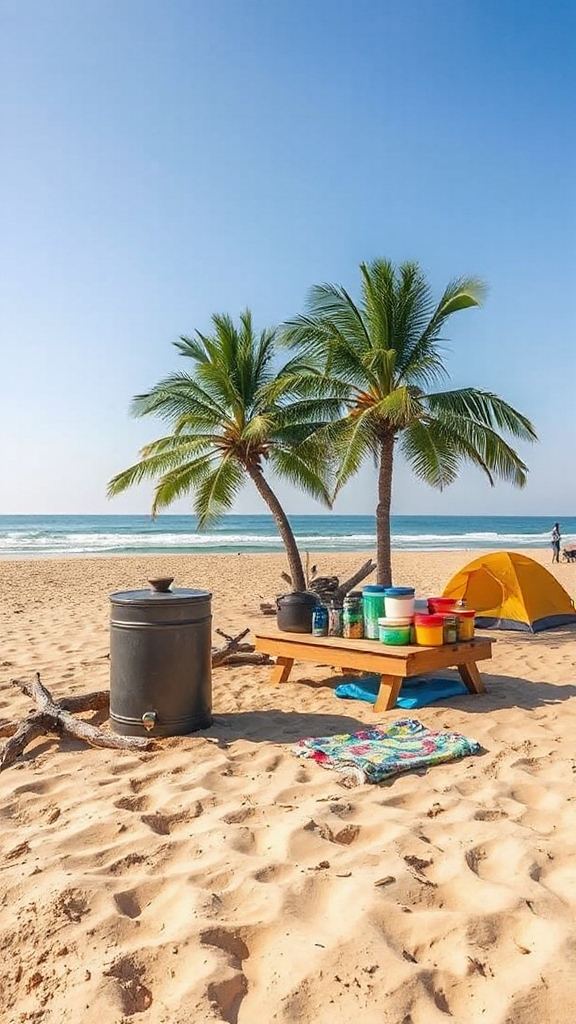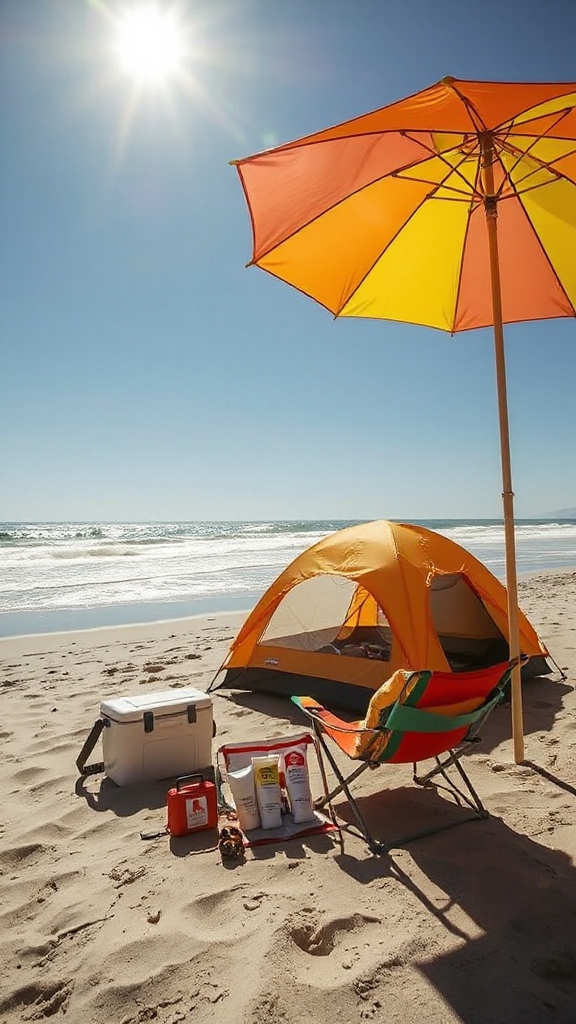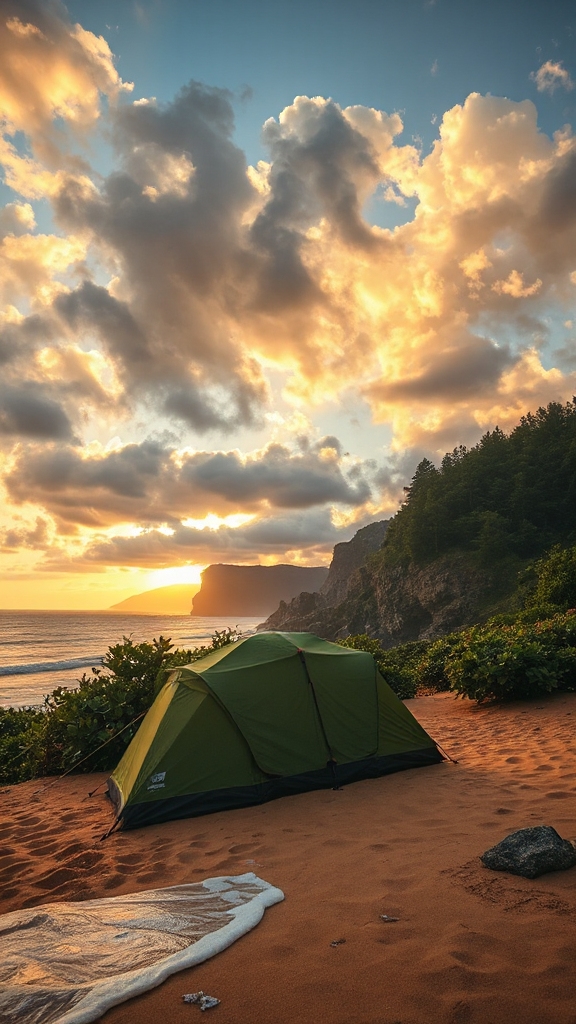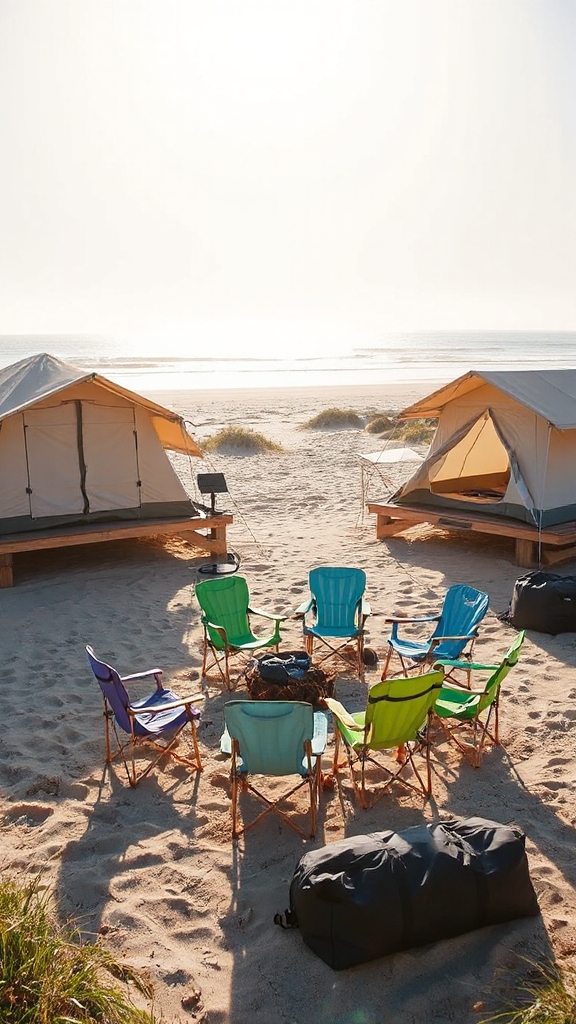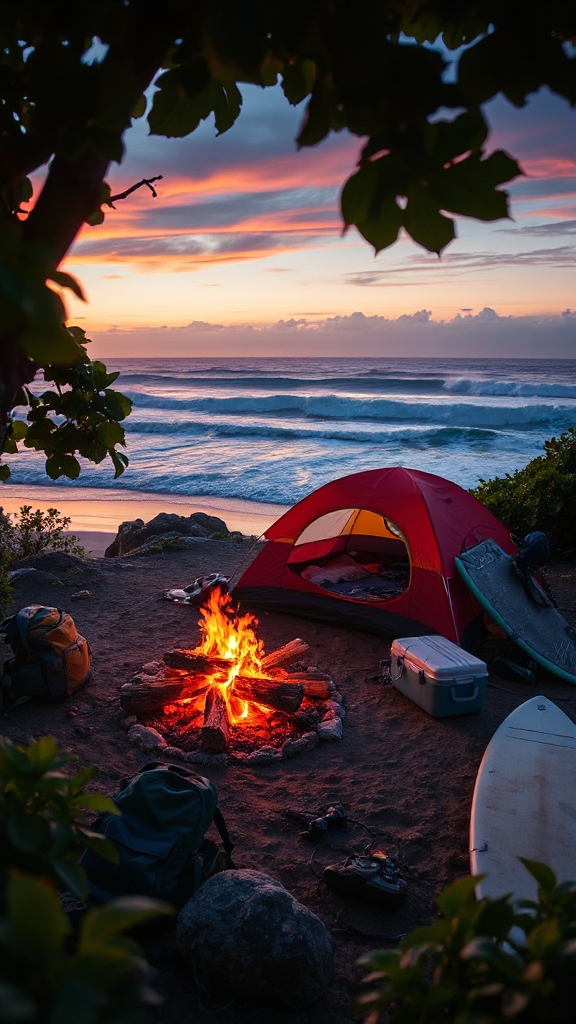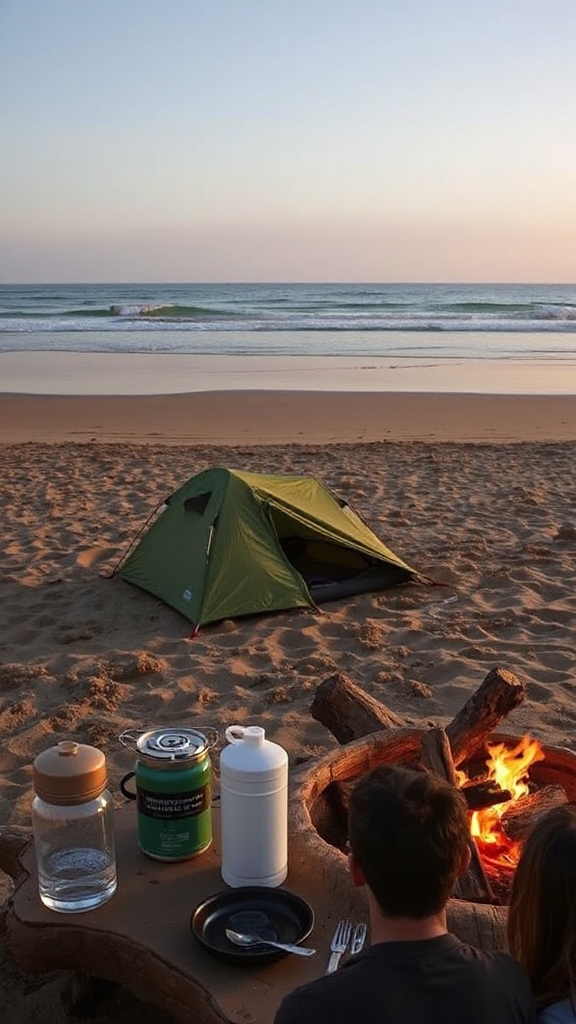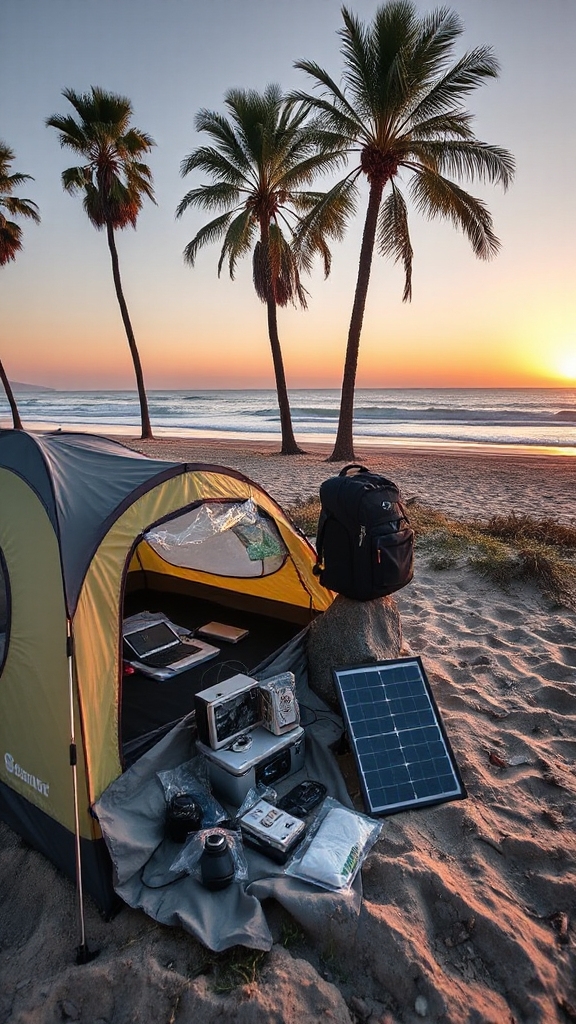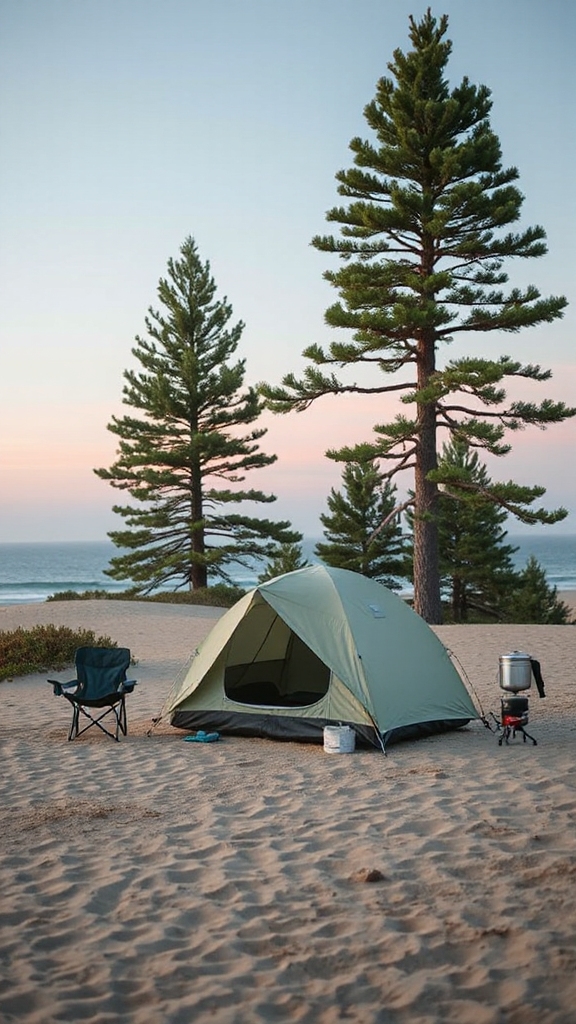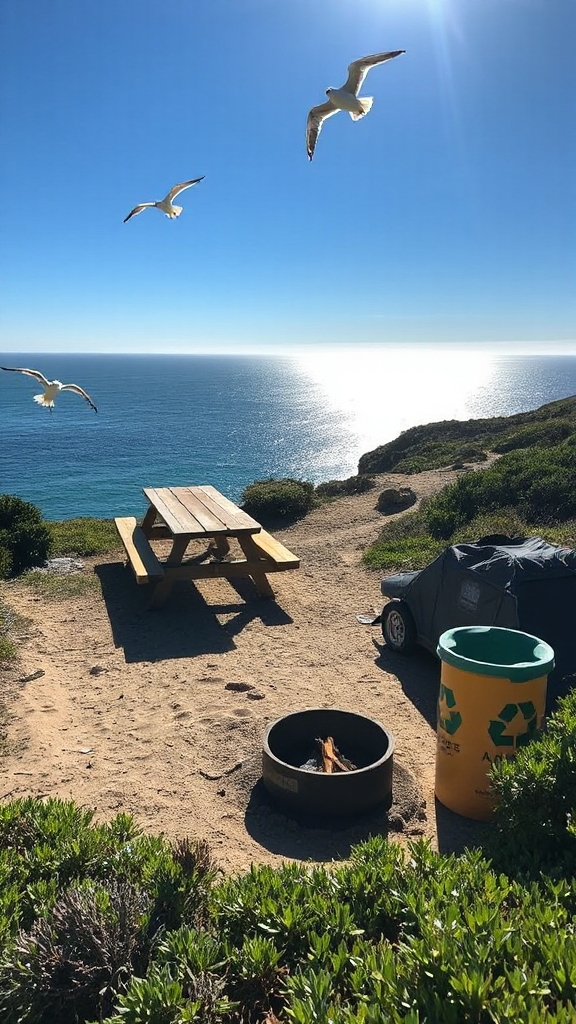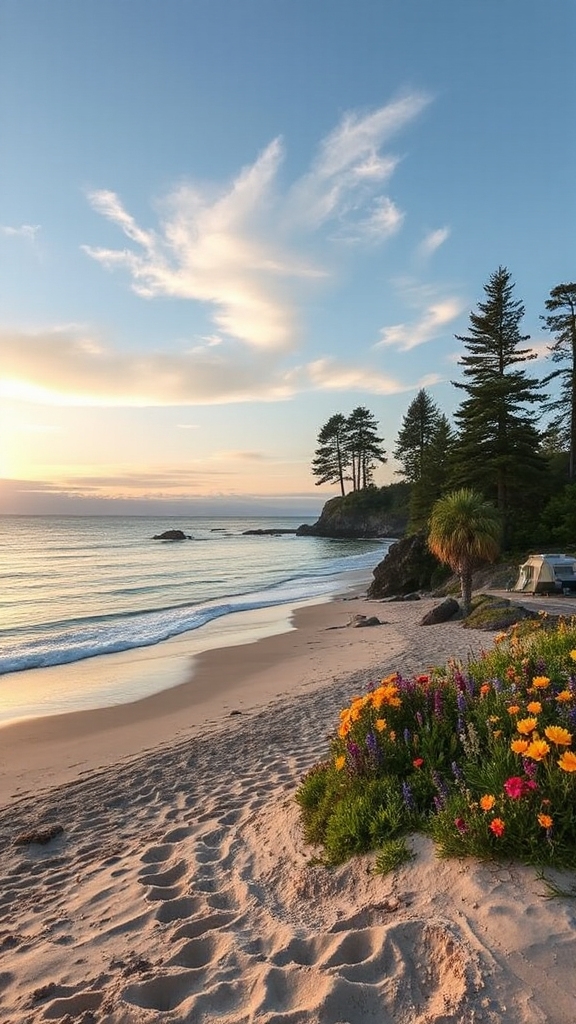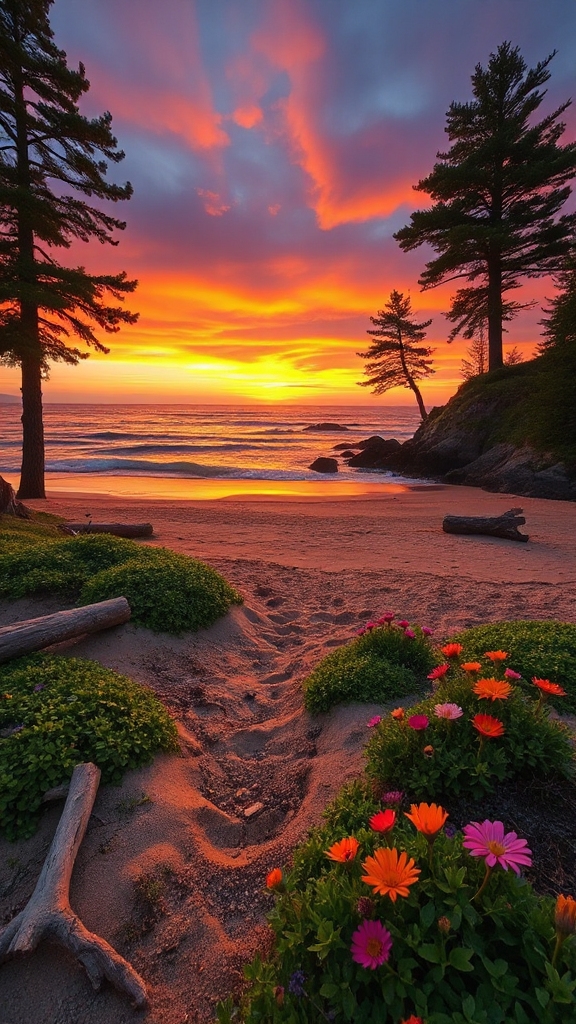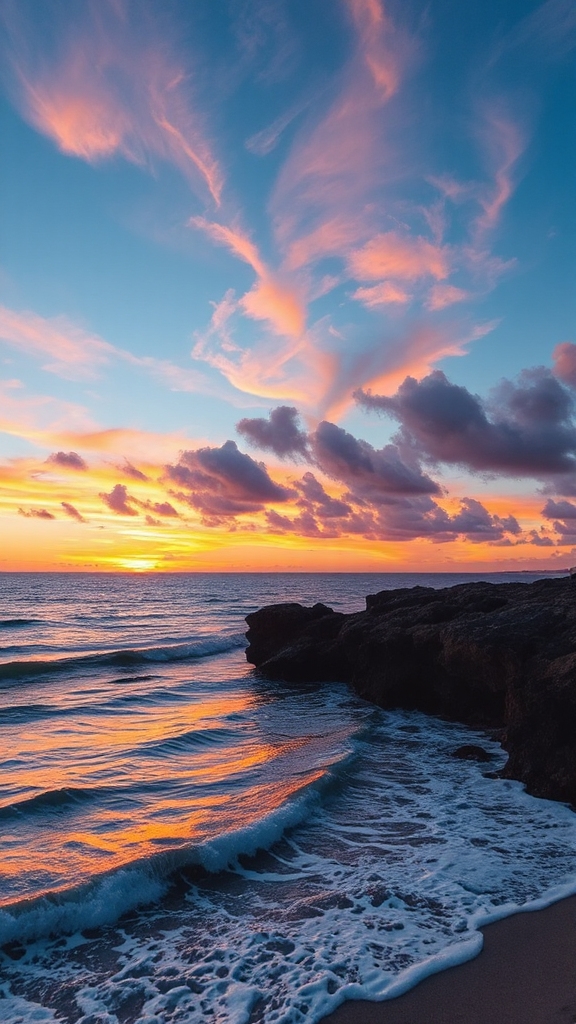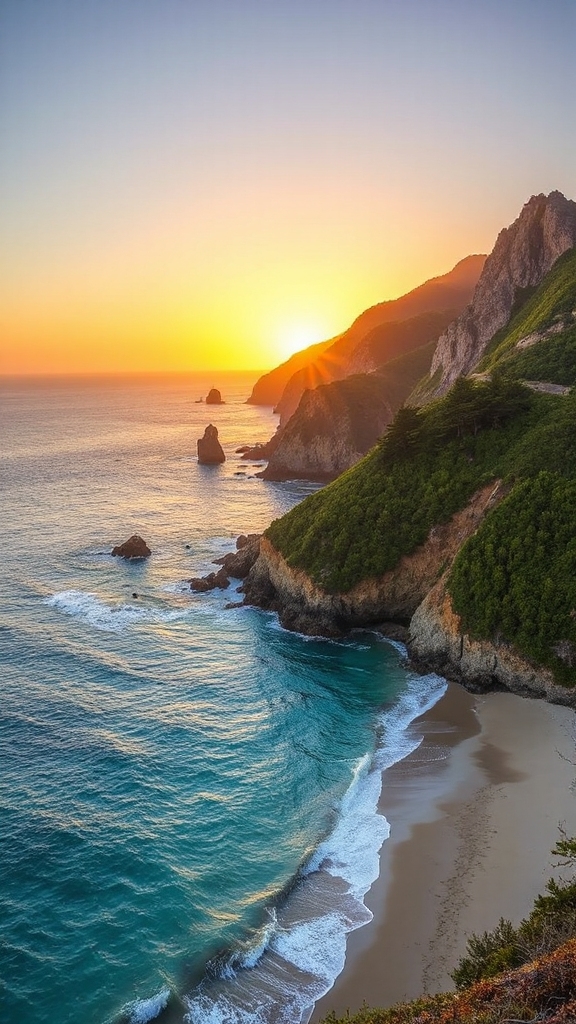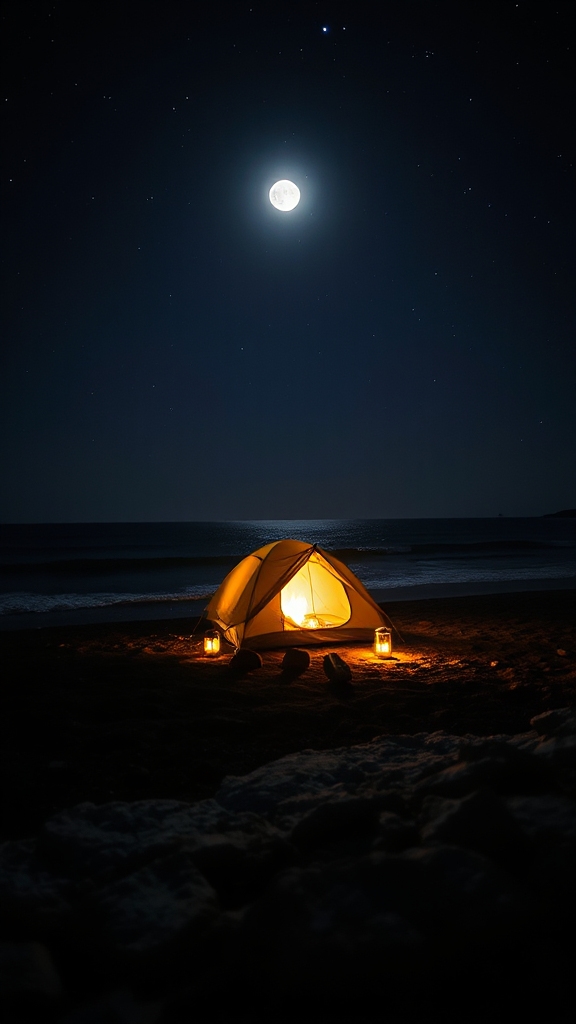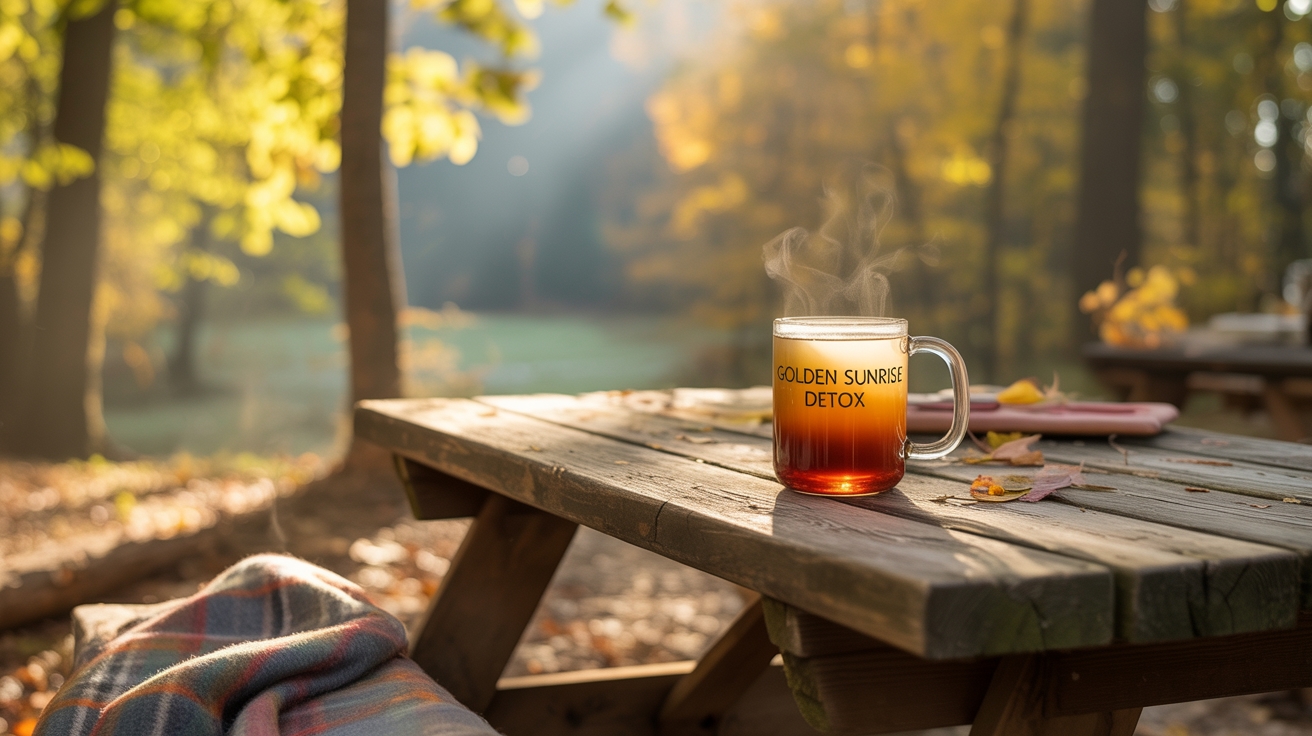If you’re dreaming of falling asleep to the sound of crashing waves and waking up with your toes in the sand, coastal camping in California might be calling your name.
But here’s the truth: picking the right spot along that iconic shoreline can make or break your whole trip.
From rugged cliffs up north to palm-fringed beaches in the south, the California coast offers thousands of campsites—but not all of them check the boxes for comfort, access, and that perfect ocean view.
You and I both know that beach camping isn’t just about pitching a tent in the sand. It’s about knowing how to work with coastal weather, stay safe around wildlife, and plan your meals without attracting a swarm of seagulls.
Let’s get you set up for coastal camping that actually feels like a vacation.
Managing Food Storage at the Beach
When camping along California’s coastal areas, proper food storage becomes essential for both your comfort and safety.
You’ll need secure coolers with padlocks and airtight containers to protect your supplies from wildlife. Keep all perishables, including dairy and meats, properly refrigerated using block ice for longer-lasting cooling.
RELATED: 45 Summer Campsites in the USA That Feel Like a Dream!
Choosing Between Northern and Southern Beaches
When planning your California coastal camping adventure, you’ll need to decide between the distinct characteristics of northern and southern beaches.
Northern beaches offer rugged coastlines, dense redwood forests, and abundant marine life, but you’ll encounter cooler temperatures and foggy mornings. Most locations can accommodate both tents and RVs, offering flexibility for different camping preferences.
State parks prioritize high-quality outdoor recreation through well-maintained facilities and diverse activity options.
RELATED: Beginner’s Guide to Renovating Your Camper for Summer Adventures!
Essential Gear for Beach Camping Success
Successfully steering through California’s coastal camping adventures requires a well-planned collection of essential gear, tailored specifically to handle the unique challenges of oceanside environments.
Vital gears like waterproof tent with secure guy lines, durable cooking equipment that performs in wind, reliable lighting solutions, and extensive safety items will make your adventure sweeter.
RELATED: Maintenance Guide: Prepping Your Camper for a Stress-Free Summer Trip!
Sun Protection and Safety Equipment
Beyond assembling your camping gear, protecting yourself from California’s intense coastal sun and maintaining safety measures stands as a top priority for any beach camping expedition.
Be aware of potentially dangerous rip currents and avoid swimming alone, especially during periods of high surf.
Eco-Friendly Camping Practices
Protecting California’s coastal environments requires thoughtful camping practices that minimize our impact on these delicate ecosystems.
Choose designated campsites with eco-certifications and established fire pits, and always follow a strict pack-in, pack-out policy.
Use solar-powered devices, reef-safe sunscreen, and biodegradable products.
Weather-Ready Camping Strategies
Beyond nighttime safety precautions, successful coastal camping depends heavily on understanding and preparing for California’s dynamic weather patterns.
Keep your tent properly staked for coastal winds, store gear in waterproof bags, and always have a windbreaker handy for foggy mornings and cool evenings.
Timing Your Reservation for Prime Beach Sites
While securing a prime California beach campsite might seem challenging, understanding the state’s reservation system will markedly improve your chances of success.
Good news – interactive maps and tools are available to help you explore and select the perfect coastal camping location.
Setting Up a Sand-Resistant Camp
Mastering sand-resistant camping techniques can transform your coastal experience from frustrating to fantastic.
Set up your tent using deadman anchors buried at 45-degree angles, and don’t forget to place a moisture barrier underneath. Create a designated shoe removal zone with outdoor mats, and store your gear in sealed containers.
Fire Safety and Alternative Cooking Methods
Safe fire practices form the cornerstone of coastal camping in California, where the risk of wildfires demands careful attention to regulations and safety protocols.
Camp stoves or portable grills are safer alternatives, especially during high-risk fire conditions.
Beach-Friendly Meal Planning
While enjoying California’s scenic coastline, you’ll need a well-planned meal strategy that balances convenience with nutrition.
Pack pre-cooked proteins like chicken skewers and prepare one-pot meals for easy campsite dinners. Store perishables in well-iced coolers, and keep raw meats separate from ready-to-eat foods.
Planning a California coastal camping trip during peak season requires strategic preparation and timing.
To minimize crowd impacts, plan your activities for early mornings or evenings, and consider visiting during shoulder seasons like April, May, September, or October for a more relaxed experience.
Making the Most of Limited Facilities
To guarantee a comfortable stay at California’s coastal campsites, you’ll need to adapt to the limited facilities available.
Bring collapsible water containers and plan for at least a gallon per person daily. Pack energy-efficient LED lights and portable power sources, as hookups may be scarce.
Protecting Electronics From Sand and Salt
Electronic devices face three primary threats at coastal campsites: corrosive salt spray, invasive sand particles, and moisture damage.
To protect your gear, store devices in waterproof cases when not in use, and clean them promptly if exposed to sand or salt.
Maximizing Your Camping Space
Five key principles guide successful space management at coastal campsites, where every square foot counts.
You’ll want to plan your layout carefully, utilize vertical storage options, pack multi-functional gear, organize common areas efficiently, and optimize sleeping arrangements.
Maintaining Campsite Cleanliness
Since maintaining a clean campsite is essential for both your comfort and environmental preservation, you’ll need to implement effective cleanliness strategies during your coastal California camping trip.
Pack biodegradable soap, mesh strainers, and collapsible washbins for dish cleaning, and set up a designated waste area with heavy-duty trash bags.
Local Resources and Emergency Preparedness
While exploring California’s coastal regions requires careful planning, familiarizing yourself with local resources and emergency services will guarantee a safer camping experience.
You’ll find essential support through Reserve California for campsite bookings, state park websites for detailed maps, and local ranger stations for current conditions.
Selecting the Perfect Campsite Location
The success of your coastal camping experience largely depends on choosing the right campsite location along California’s diverse shoreline.
Look for sites that combine scenic ocean views with practical amenities like clean bathrooms and reliable water sources. Make sure to review available interactive maps online to explore specific coastal camping opportunities and their surrounding features.
Among over 14,000 campsites across California’s state parks, many offer breathtaking oceanfront locations.
Understanding California’s Coastal Weather Patterns
Because California’s coastal weather patterns differ dramatically from inland conditions, you’ll need to prepare for unique microclimates when camping along the shore.
Expect summer temperatures 20-30°F cooler than inland valleys, with persistent morning fog and high humidity. Recent data shows that coastal regions remain cooler than interior areas throughout late spring and summer.
Coastal Wildlife Awareness and Safety
Successful coastal camping requires a thorough understanding of local wildlife and their behaviors.
Keep your food in bear-proof containers, even in coastal areas, and watch for marine hazards such as jellyfish and sea snakes while swimming. Don’t feed seagulls, as they can become aggressive.
Beach Activities and Entertainment
Whether you’re seeking adventure or relaxation, California’s coastal campgrounds offer an impressive array of activities to enhance your outdoor experience.
As evening approaches, gather around a bonfire for s’mores, join ranger-led nature talks, or stargaze under clear coastal skies.
Water Conservation and Management
Managing water resources effectively is essential for coastal camping in California, where drought conditions and limited freshwater access pose unique challenges.
Night Safety on Coastal Campgrounds
While coastal camping offers stunning seaside views, nighttime presents unique safety challenges that require careful attention.
Keep your valuables locked and out of sight in your vehicle, and secure all camping equipment before dark. When traversing beach paths at night, use a headlamp or flashlight, and stay vigilant of your surroundings.

